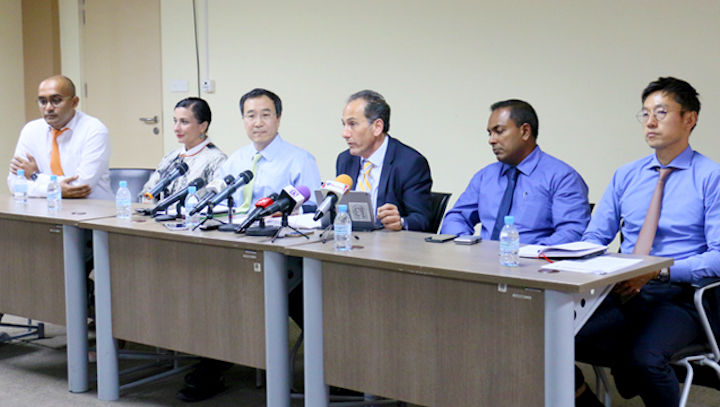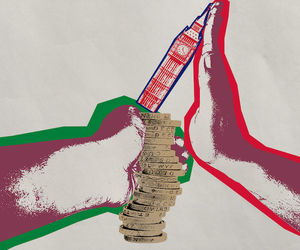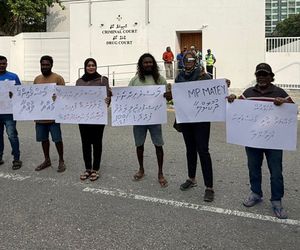IMF restates advice for mitigating risks over high debt
The current administration’s ambitious infrastructure scale-up “has the potential for transforming the economy but also carries risks given the country’s large fiscal and external imbalances,” a visiting IMF delegation warned.

18 Jul 2017, 9:00 AM
The International Monetary Fund has restated advice for mitigating risks associated with high levels of debt driven by the current administration’s ambitious infrastructure scale-up.
The expansion of the Velana International Airport and the construction of a bridge to connect the capital with a new urban centre under development on a reclaimed artificial island “could raise the economy to a higher growth path,” a visiting IMF delegation told the press Monday.
“This investment surge has the potential for transforming the economy but also carries risks given the country’s large fiscal and external imbalances. Policies should focus on mitigating these risks while building resilience and pursuing inclusive and sustainable growth,” said Phillipe Karam, who led the IMF staff team for the 2017 article IV consultation.
The team visited the Maldives from July 5 to 18 and met with the finance minister, central bank governor and lawmakers as well as bankers, tourism operators and other representatives of the private sector and multilateral organisations.
Become a member
Get full access to our archive and personalise your experience.
Already a member?
Discussion
No comments yet. Be the first to share your thoughts!
No comments yet. Be the first to join the conversation!
Join the Conversation
Sign in to share your thoughts under an alias and take part in the discussion. Independent journalism thrives on open, respectful debate — your voice matters.




